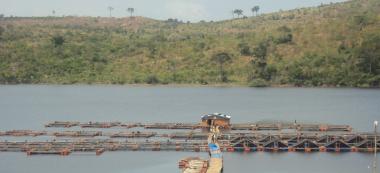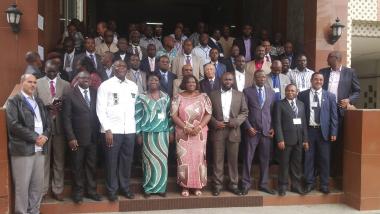The African Union Commission recently organised a meeting of communications experts from across the African Union entities and partners to discuss strategic communications for the Comprehensive Africa Agriculture Development Programme (CAADP).
The gathering of communications experts focused on refining communication workplans and methods to enhance awareness and understanding of CAADP's goals and initiatives. The experts highlighted the pressing need for improved strategies for communication and enhanced collaborative efforts to drive agricultural development across the continent.
The event, which marked the first CAADP communications experts meeting, emphasized the importance of bridging communication gaps and forming a formal working group to address these issues. Participants emphasized the need to develop targeted content and products tailored for various stakeholders and especially the small-scale farmers. The importance of capturing best practices and sharing them across the continent was highlighted.
The meeting underscored the significance of youth, women, farmers associations, and Civil Society Organizations (CSOs) and other non-state actors as important voices in agriculture who should be integral to these processes especially at the grassroots level. As the 4th Biennial Review (BR) cycle of the Malabo Declaration is underway, participants stressed the need for effective communication and visibility strategies to ensure the wide dissemination of results. With CAADP having existed for over two decades, there was a consensus that many farmers are still unclear about the program's objectives, significance and impact.
The importance of engaging national communication experts, tailoring messages to targeted audience, and collaborating with various stakeholders was stressed throughout the discussions. One of the central focal points addressed was the imperative to establish an all-encompassing communication strategy spanning all phases of the CAADP process. The team from the African Union Commission (AUC) emphasized the significance of involving both conventional and digital media to disseminate comprehensive information regarding CAADP's initiatives and achievements.
The participants proposed a variety of tools such as succinct policy briefs, engaging infographics, and dynamic social media campaigns, aimed at proficiently conveying the core essence of CAADP's mission. Several strategies have been identified to elevate these procedures, including the reconfiguration of messages to harmonize with CAADP recommendations, leveraging global platforms to contextualize and accentuate CAADP's objectives, and harnessing the potential of media to amplify the program's narratives and broaden its reach. As part of this initiative, a comprehensive communications toolkit will be developed, comprising policy briefs, visually impactful infographics, and other meticulously crafted educational materials. These resources will serve as instrumental assets in effectively communicating with the intended audiences.
Experts recommended revamping and sustaining a journalist and media network dedicated to covering agricultural developments and CAADP-related news. Encouraging media coverage of CAADP events, milestones, and success stories was identified as a crucial step in raising awareness and promoting accountability.The meeting also addressed the importance of creating a coordinated framework for communication efforts across different levels, from continental to regional and national. This framework would enable CAADP to strategically engage with governments, policymakers, and other stakeholders to ensure that the program's recommendations are incorporated into national agricultural policies and budgets.
The participants also discussed the need to integrate communication activities within the broader CAADP process, including the BR cycles. They stressed the significance of aligning communication strategies with the goals of each BR cycle and ensuring that the results and recommendations are effectively communicated to all relevant stakeholders.
The experts emphasised the importance of sustained efforts to promote effective communication, collaboration, and advocacy for CAADP's objectives. Participants highlighted the significance of collaboration among AU, RECs, national governments, CSOs, and media. They agreed to champion CAADP processes within their organisations, enhance strategies to work in harmony with various partners for coherence and impactful outcomes.
The meeting served as a rallying point for various partners to recognize the challenges and opportunities in communicating the importance of agricultural development across Africa. With a renewed commitment for sustained effective communication efforts, continuous engagement, collaboration, and advocacy, CAADP aims to create a brighter future for African agriculture and rural communities.
The meeting brought together representatives from the African Union Commission (AUC), AUDA-NEPAD, AU-IBAR, IGAD, SADC, CCARDESA-SADC, WFP, FAO, ILRI, Policy Link and FARA.
Please see an informative CAADP toolkit here
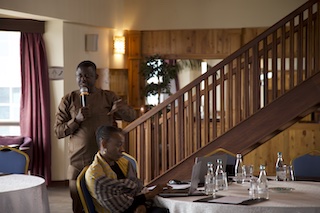

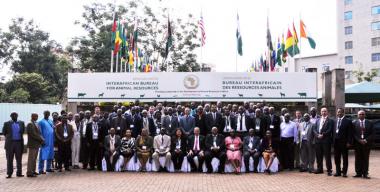
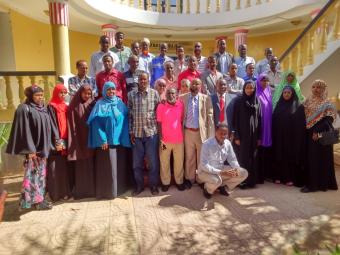
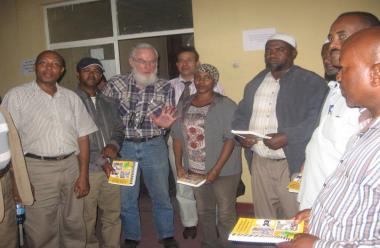
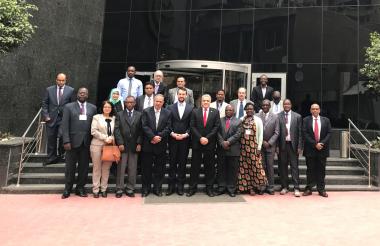
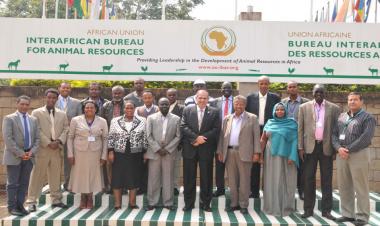
![[© 2014 AU-IBAR. Participants attending a training programme in Surveillance and Epidemiology of Trade-Related Transboundary Animal Diseases being Offered by the University of Nairobi, Faculty of Veterinary Medicine.] © 2014 AU-IBAR. Participants attending a training programme in Surveillance and Epidemiology of Trade-Related Transboundary Animal Diseases being Offered by the University of Nairobi, Faculty of Veterinary Medicine](/sites/default/files/styles/normal_size/public/2020-09/57.jpg?itok=k2u2EVX0)
